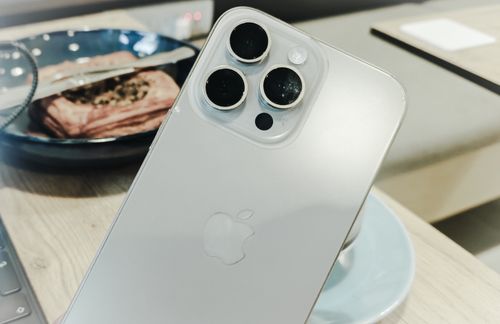The impossible has happened!
The European Union (EU) has forced Apple to make some fundamental changes to the iPhone ecosystem that lower the walls around its products. Here's a brief rundown:
- You can download apps from other places instead of just Apple's App Store. Crazy? I know!
- Apple will allow game streaming apps on the App Store, such as Xbox Cloud and Nvidia GeForce.
- Payments can be made from an external website instead of being limited to Apple's system baked inside apps.
- Contactless payments will be available in more apps, not just Apple Pay, as the company is finally opening the NFC system for others.
But it's the change to Safari that really holds promise.
How Apple shitti-fied browsing on iPhone?
In a stunning move to comply with the EU's oh-so-important Digital Markets Act (DMA), Apple is magnanimously allowing developers to use browser engines other than its very own WebKit.
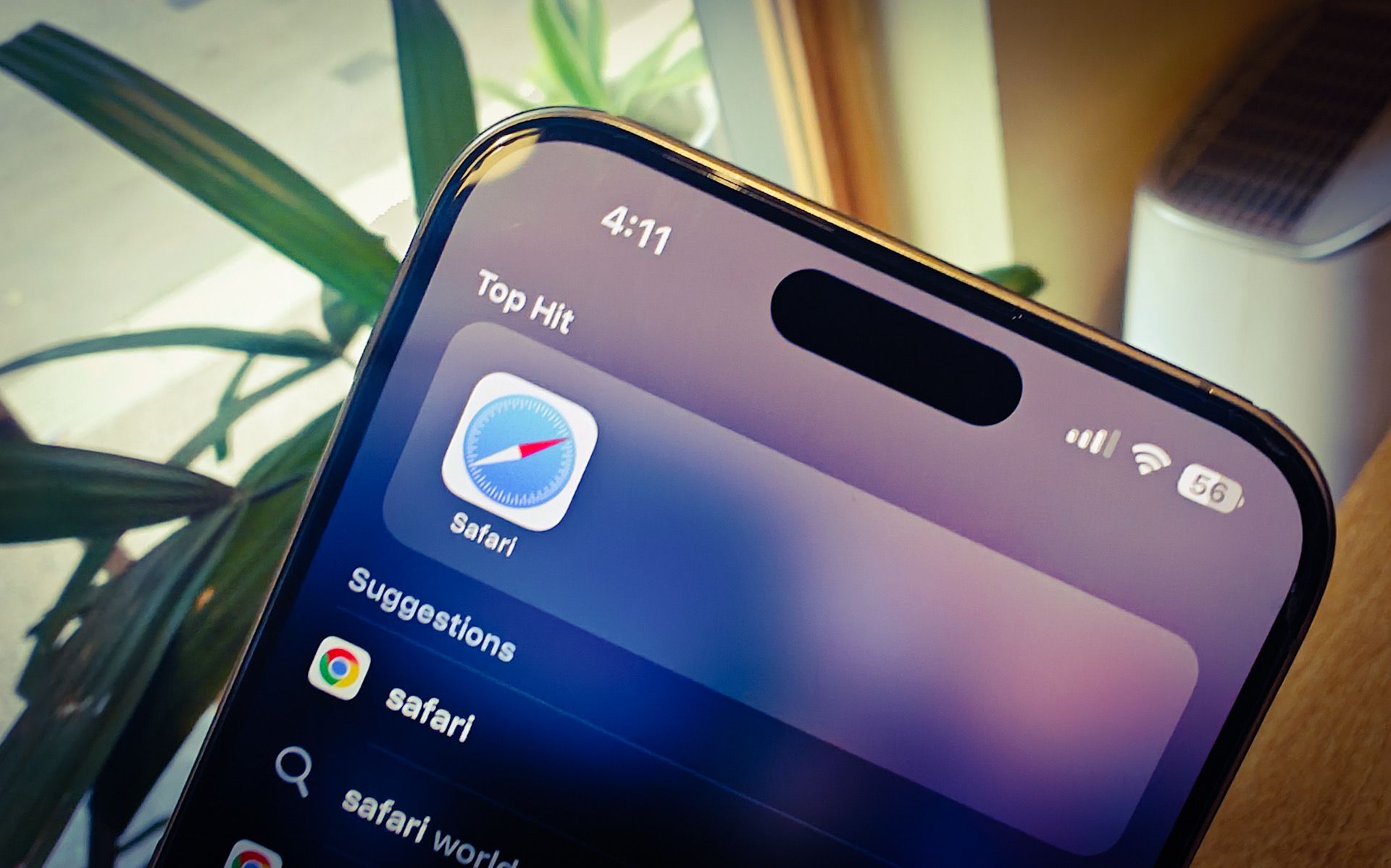
No more being strong-armed into using Apple's tech for web browsing on iPhones!
Until now, poor browser vendors like Google's Chrome and Microsoft's Edge were stuck making glorified Safari skins, all because it forced them to use an unmodified version of Safari's WebView. The edict was clear:
Use webkit to build your iOS browser, or sod off!
Unsurprisingly, everyone was basically shipping their browsers with an Apple straightjacket. And let's not forget, every browser you've used on your iPhone, be it Chrome, Firefox, or Brave, is really just Safari in disguise. It's like a costume party where everyone is forced to dress as Safari.
The only meaningful choice allowed to developers was that they could change the color and design of their browsers. That's because Apple gets to be the judge of what features Safari supports. Talk about a feature gap!
Just gaze at this feature comparison by Open Web Advocacy to see how stifled these third-party browsers really are.
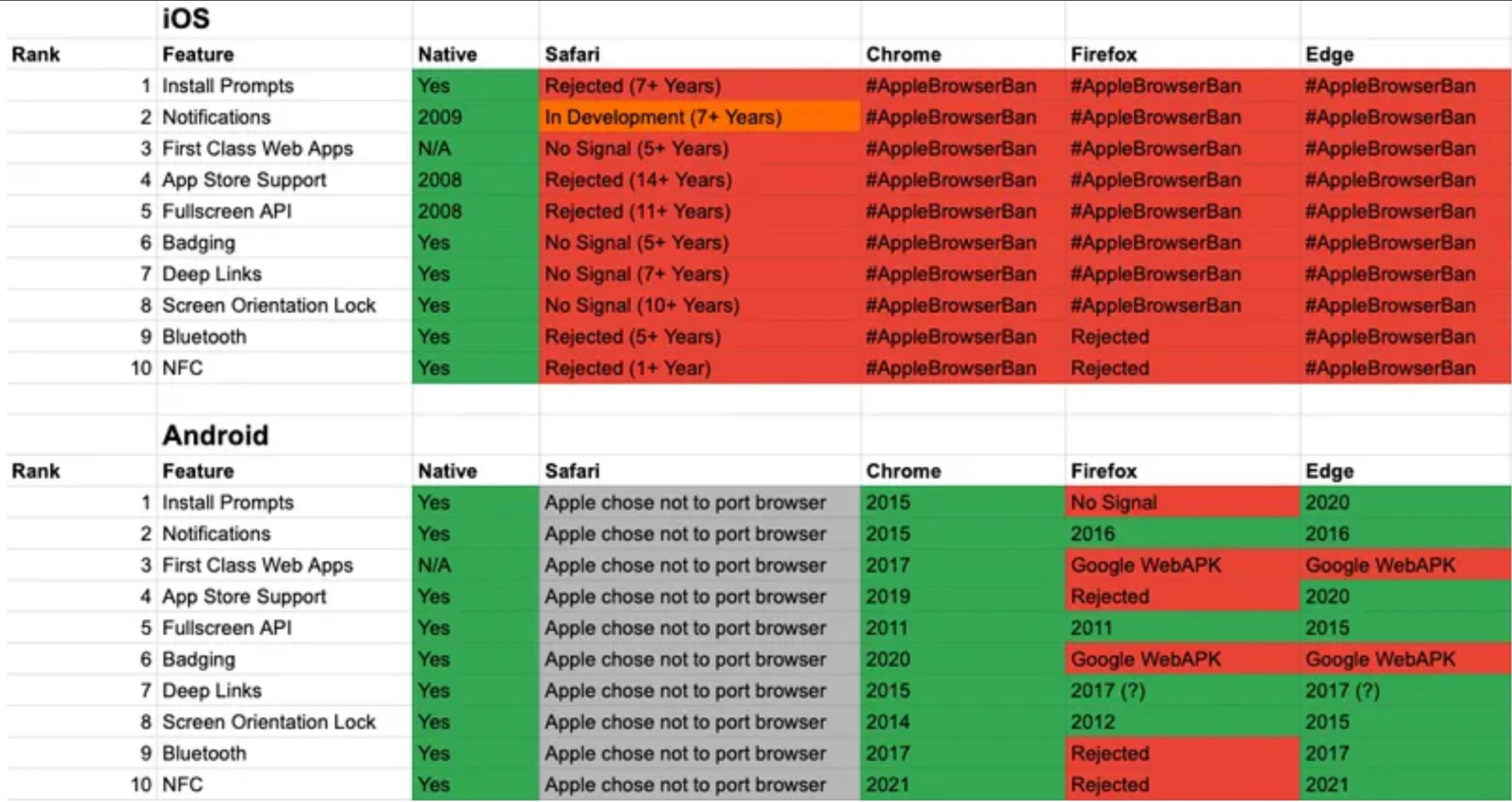
Essentially, all browser-makers are stuck using a super specific version of WebKit, with zero room to tweak or twiddle anything. Soft forks? It's more like no forks.
On the other hand, in a world where browser choice exists (shocking, I know), developers could create their own unique browsers. Let's not forget our friends in the Chromium browser ecosystem, where Android lets them actually choose features. Imagine that — choice!
But it's not just about features — or the lack thereof. It's about giving Safari an unfair leg up because, surprise, Apple controls everything on the iPhone.
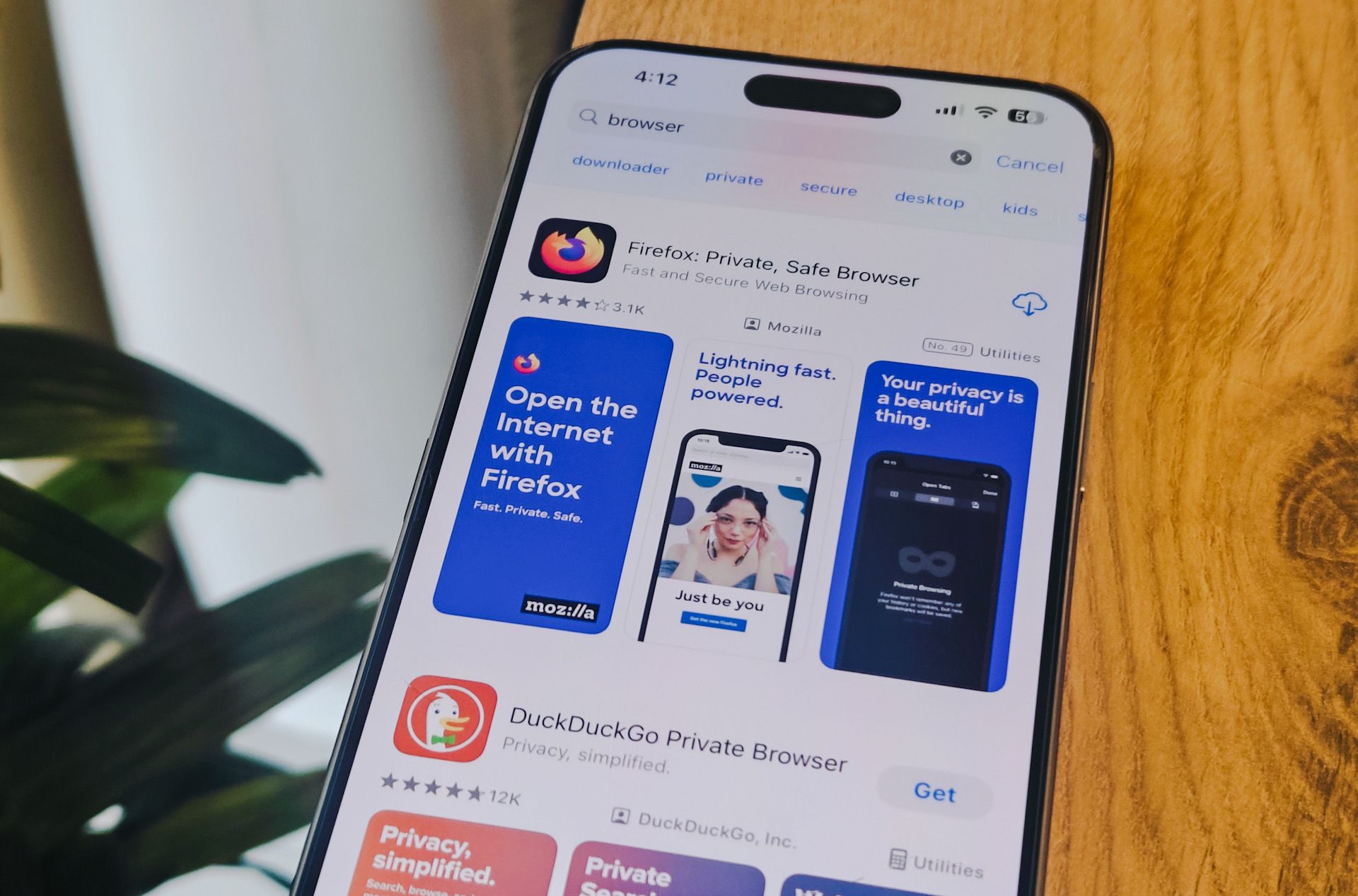
Safari gets VIP access to the iPhone's system, while others get the cold shoulder. And then there's the competition angle. This WebKit-only world means making separate apps for different platforms, hiking up costs and development headaches. Plus, Apple's fat App Store tax doesn't help.
Safari is also a bug magnet
Why create a Safari clone at a disadvantage? It's a tough sell. And for the pièce de résistance, look at Safari's failure graph on the Web Platforms Test Dashboard. It's like a masterclass in browser bugs.
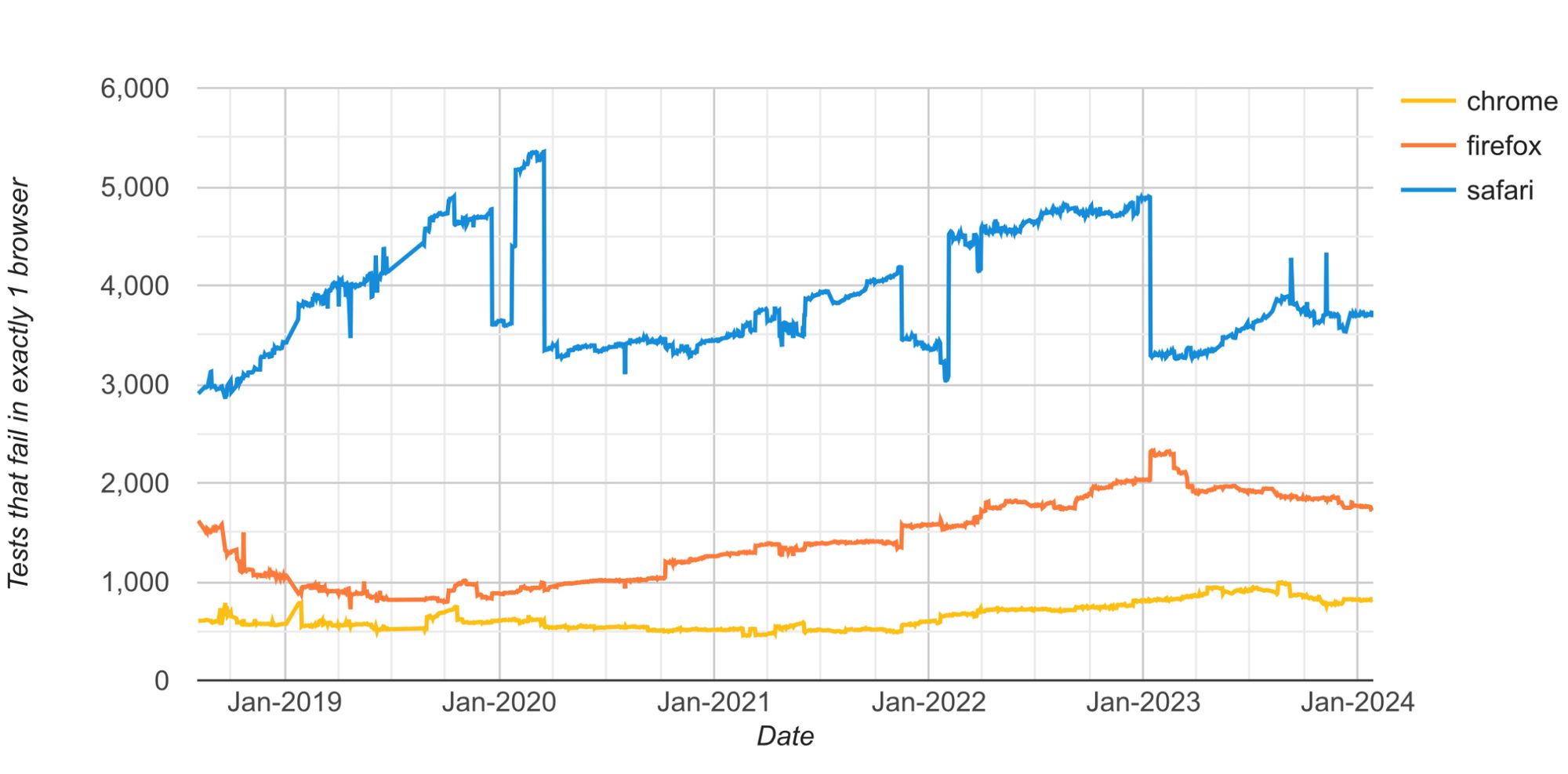
For a deep dive into Apple's monopolistic browser antics on the iPhone, check out the 108-page thriller, "Bringing Competition to the Walled Gardens - Third Party Browsers & Web Apps." It's a real page-turner!
And if you really want to get a grasp on how Apple's lazy ass allows bugs to destroy the Safari experience for years without any timely solution, this eye-opening resource at HTTP Toolkit will shock you.
Of course, since Safari was shit, all other browsers, such as Chrome, based on the same WebKit engine, also suffered from the same problems. It was as if Apple wanted to all rival Safari browsers:
Safari is shit. We'll drag everyone else in the same shit, too!
But hark! The EU has twisted Apple's arm, and now they'll allow engines like Gecko and Blink. Chrome, Edge, and Firefox on iPhone might soon get a makeover.
A less awful iPhone browsing experience is nigh
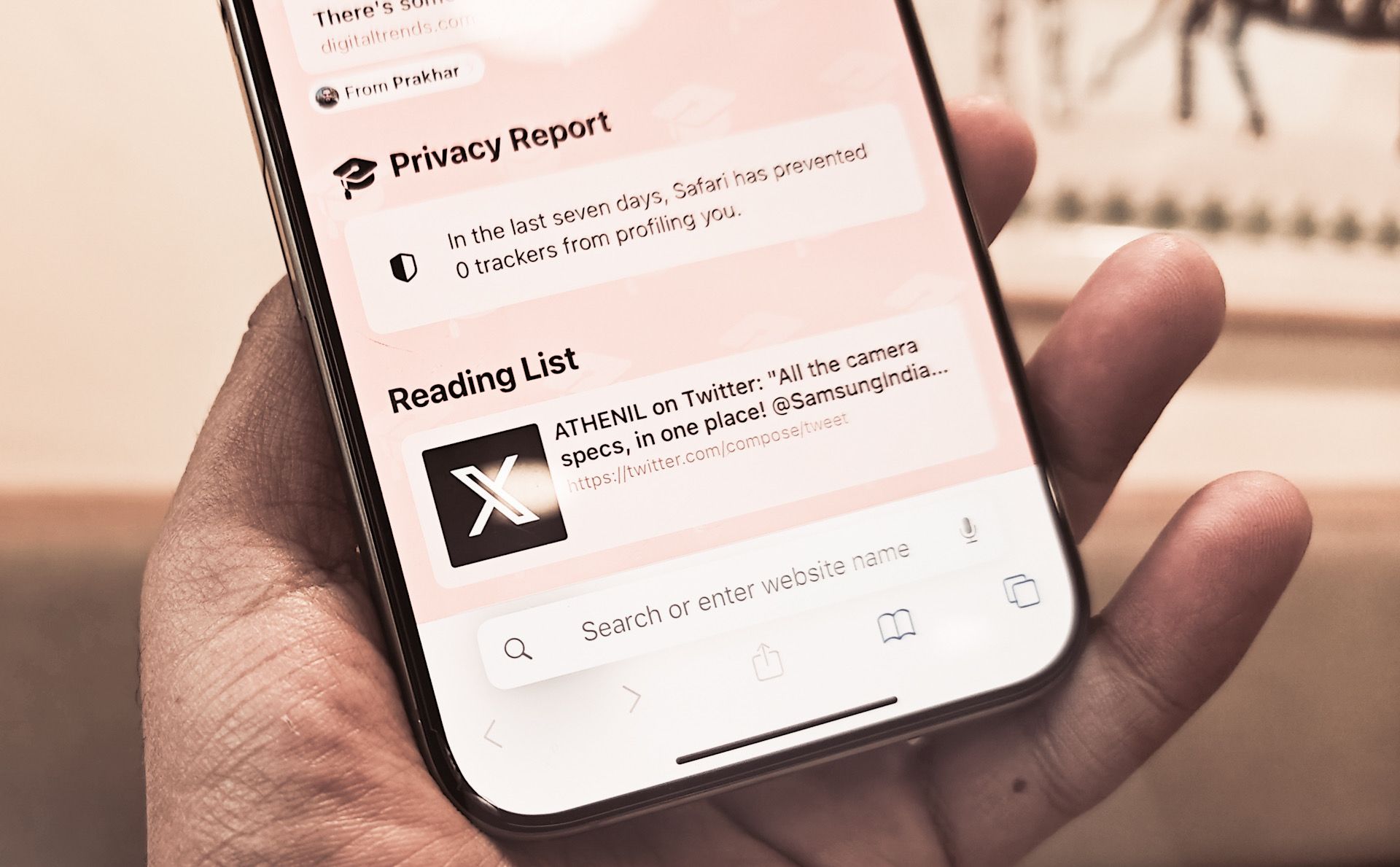
If the likes of Microsoft, Google, and Mozilla pounce on this opportunity, you will finally start seeing an entirely new set of features and fewer bugs in the web browsers for iPhones.
Yet, this grand liberation is ONLY for EU residents. Apple still harps about the security risks that these changes introduce.
One can only hope Apple extends this kindness to users worldwide who burn a fortune to buy one of them iPhones. Let's face it: we're all just yearning for a break from the Safari monotony.
To the rest of the world's regulators, grow a spine and learn a thing or two from the EU. Peace out!

